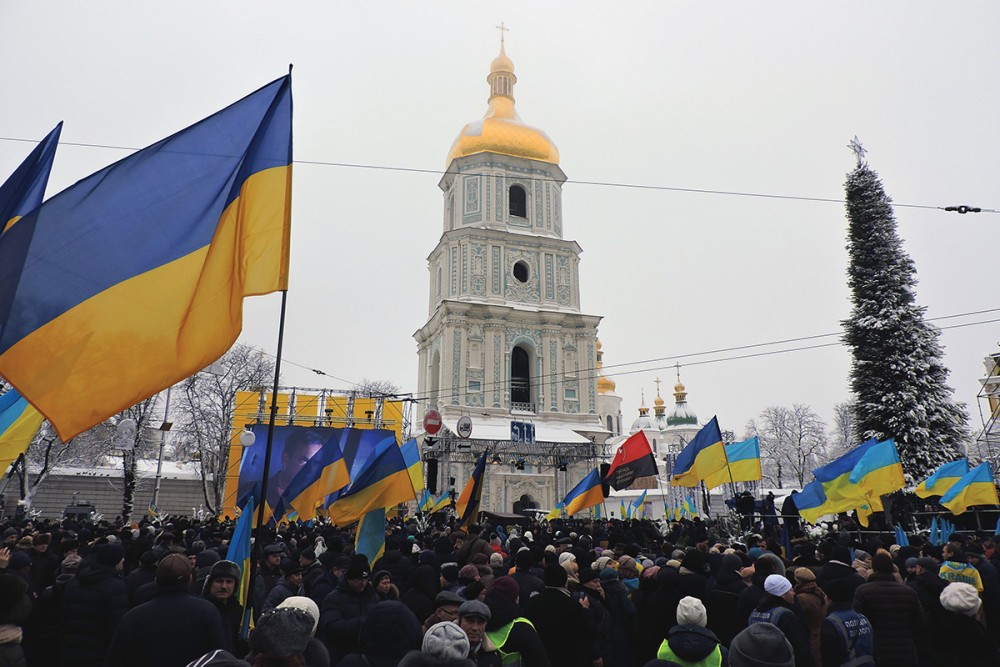Is Russia’s war on Ukraine about religion?
The history of Russian and Ukrainian Orthodoxy suggests the answer is complicated.

On February 21, Vladimir Putin laid out his case to the Russian people for a war against Ukraine. In an hour-long, televised rant, the Russian president ridiculed the notion of Ukrainian statehood and independence. Modern Ukraine was invented by the Bolsheviks, Putin said, and should never have become independent of Russia after the collapse of the Soviet Union.
Putin put his tirade in religious as well as political terms. He argued that Russia and Ukraine share one culture and one Orthodox faith. Russian military action would correct the catastrophic historical mistakes that separated the two countries and their one religion. He argued that Ukrainian nationalists had taken possession of several Orthodox parishes that belong to the Moscow Patriarchate—and that Russia must defend its churches in Ukraine.
To understand what he meant, you have to go back to 988 CE. In what is now Crimea, Prince Vladimir (Volodymyr in Ukrainian) chose to be baptized into the official Christian faith of the Byzantine Empire. According to legend, Vladimir made this decision after his envoys to Constantinople visited Hagia Sophia and described for him the Orthodox liturgy, with its engagement of the physical senses and direction of them to God’s holy presence. “We no longer knew whether we were in heaven or on earth,” they exclaimed. When Vladimir returned to Kyiv, his warriors and their families were baptized en masse in the Dnieper River.




